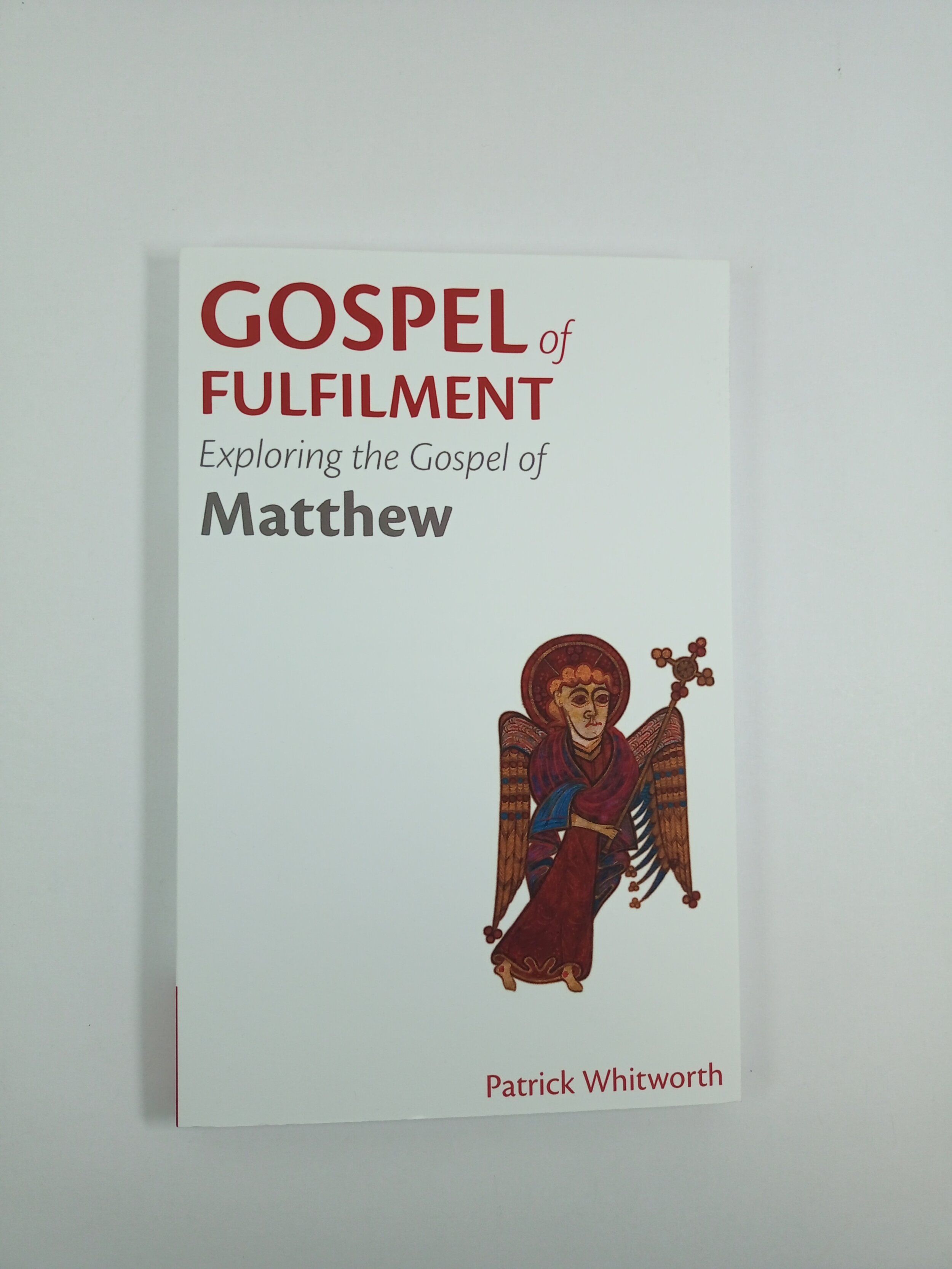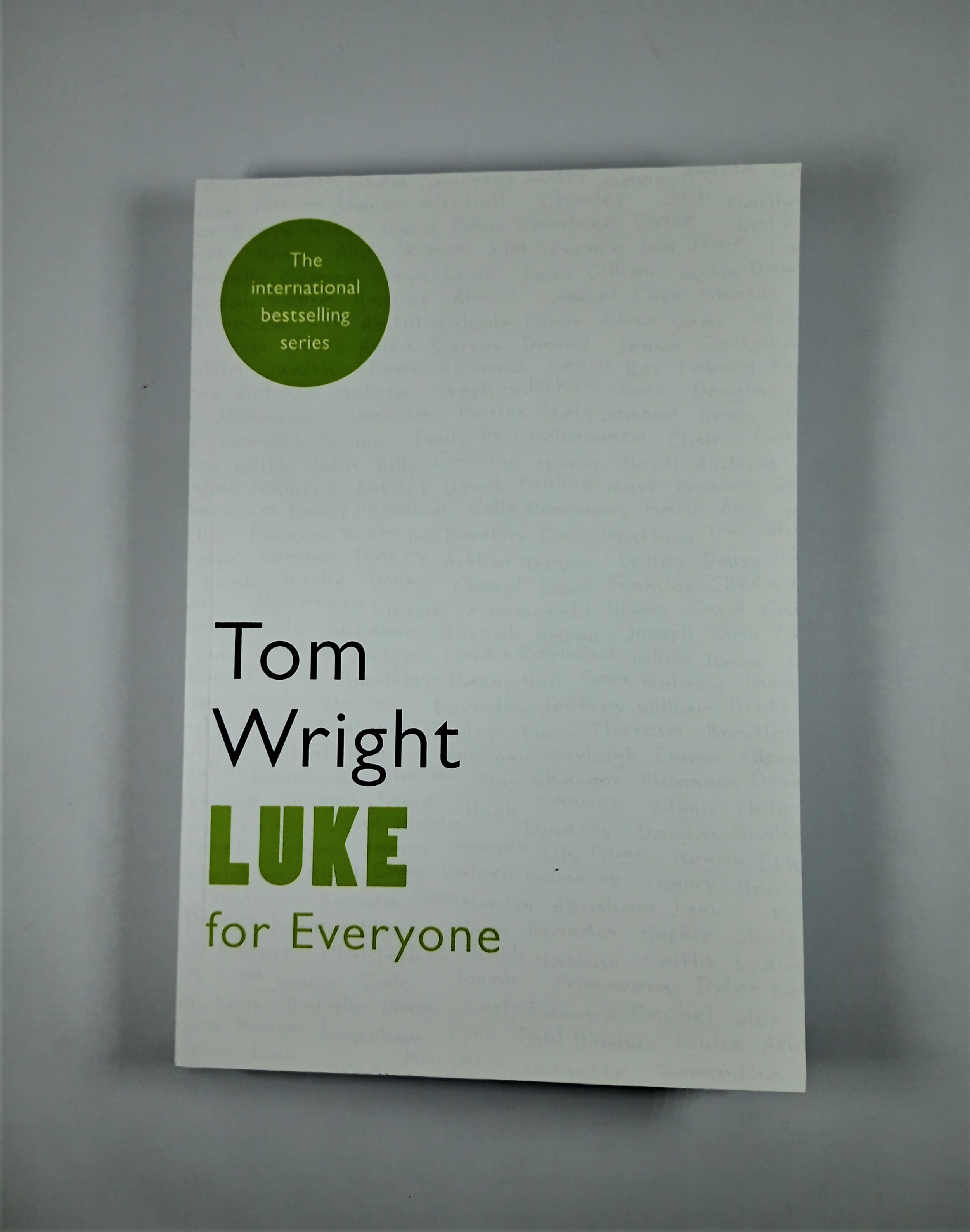New Testament BST Commentaries - Edited by John Stott
Edited by Alec Motyer, John Stott and Derek Tidball, the Bible Speaks Today (BST) commentaries cover all sixty-six books of the Bible, both Old and New Testaments, and key biblical themes in fifty-five volumes. Designed for both preachers and those who teach from Scripture, and for those studying the Bible on their own, each BST volume features insightful, readable commentary on the biblical texts and discussion of how they relate to contemporary life.
Matthew
The Gospel according to Matthew is perhaps the most important single document of the New Testament, for in it we have the fullest and most systematic account of the birth, life, teaching, death and resurrection of the founder of Christianity, Jesus the Messiah.
Michael Green shows how this very Jewish Gospel portrays the power and purpose of Jesus' life and work, which was to bring light to all nations. Matthew records Jesus as Son of God, Messiah, Son of David, Son of Man and supremely as God returning to Jerusalem as judge and redeemer. The consequences of this steady focus are as relevant now as then. We need Matthew's emphasis on the unity of God's revelation, old and new, its reaching on the life of discipleship and the meaning of the kingdom of heaven, and its insights into the people of the messiah, the end of the world and the universality of the Good News.
Mark
At first sight the Gospel of Mark is a simple account of the ministry of Jesus with lots of stories, plenty of action, a large amount of human interest, and some very straight and searching questions, mostly from Jesus himself.
Yet underlying the Gospel is the cross and the cost of discipleship, focusing the question of who Jesus was, and how people should respond to him. Donald English's exposition picks up Mark's focus on faith as a risky, total commitment to Christ, and on its mysteries - pre-eminently, why some people believe, and others do not, even to the point of opposition.
Luke
Luke the Physician was fascinated by people - rich and poor, Jews and Gentiles, men and women, rulers and slaves. In his Gospel he delights to portray Jesus as the Saviour not of an elite group but of any one, in any condition, who turns to him. Jesus is indeed the Saviour of the world.
Luke knew exactly what he was doing when he wrote his Gospel. He tells us his goal in the opening verses: to set forth an orderly and accurate account of what had been accomplished by the life and teaching of Jesus Christ. In this engaging exposition, Michael Wilcock gives special attention to these opening words. Then, as he examines the individual deeds and sayings of Jesus, he shows how the structure of Luke's narrative brings out their meaning.
The good news of Luke is still true today. None of us are beyond redemption unless we choose to put ourselves there. This message has implications not only for our personal lives but for our churches and society as a whole.
John
John's Gospel has had an incalculable impact on human history. Its pages contain a moral and spiritual potency which, over the centuries, has transformed communities, brought about political change and remade human character on a scale without precedent.
The power remains in the Gospel today. At its centre, as at the centre of his exposition, is Jesus Christ in his glory and grace, majesty and tenderness. Bruce Milne believes that we can experience his presence even today, for the Gospel was 'written that ... you may have life in his name'.
The Gospel of John is a witness to the King, as much a tract for our times as for John's. Bruce Milne's exposition focuses on the ministry of Jesus before his incarnation, during his life on earth and after his resurrection. The centrepiece of this Gospel is the cross, and its background the solemnity of God's judgment of the world.
Acts
The Book of Acts, John Stott believes, is important not only for its vivid historical record. It is also vital for the inspiration which it brings to us now. Today's church can seek to recapture something of the early confidence, enthusiasm, vision and power of the church of the first century. Despite all its imperfections and troubles, the young church clearly had been overwhelmed by the Holy Spirit, who thrust it out to witness.
The experiences of the early church therefore have much to say about issues that concern Christians today. What can Acts tell us about extraordinary manifestations of the Spirit? How should churches structure themselves - with elders, deacons, pastors or all three? And, of course, how should the church reach out into a lost world, with the glorious message of salvation?
As John Stott concludes: 'The Acts of the Apostles have long ago finished: the acts of the followers of Jesus will continue until the end of the world.'
Romans
Paul's letter to the young church in Rome has dramatically influenced Christians through the ages. It has been described as a 'gateway into heaven'.
In his letter Paul gives a complete picture of the gospel - the fullest and grandest in the New Testament. His horizons are vast, taking in time and eternity, the past, present and future of humanity, and the great themes of justification, sanctification and glorification.
This is the most personally rooted of John Stott's expositions, for he confesses to have re-encountered Paul's letter constantly throughout his Christian life. At the same time, her interacts with other commentators, some of whom are challenging interpretations that are time-honoured and traditional. He sees Romans as a Christian manifesto for our increasingly unstable world, emphasising the good news of freedom through Jesus Christ. Paul's vision of this freedom is astonishing. It overcomes ethnic conflict, the darkness of moral guilt, condemnation from God and alienation from others. It is a freedom to serve God and our neighbours in love.
1 Corinthians
David Prior, in this fresh and gripping exposition, writes first of all as a pastor. His conviction is that 1 Corinthians is uniquely a tract for our times. His aim is that churches will recognise the problems and tensions inherent in being God's people in the increasingly urban world today, and not be ignorant of the true spirituality that is the work of the Holy Spirit. He wishes for each of them as a body to grow to express the total Lordship of Christ.
For Paul, he points out, Corinth as a strategic test case: if the gospel of Christ could change lives there, it could do so anywhere. He saw in the Corinthian believers the rich resources for Christian ministry and mission that are present in every local church.
2 Corinthians
The letter of 2 Corinthians is important, Paul Barnett believes, for its magnificent message that God's power is brought to people in their weakness, not in human strength.
This momentous theme emerges in a dramatic real-life situation. The apostle confronts shadowy opponents who had recently come to Corinth and formed an alliance with some of the church leaders and members. His letter is a fascinating record of that conflict.
Paul Barnett argues that this heated debate between apparent power and apparent weakness is still with us today. His aim in this exposition has been to allow the timely message of 'God's fool' to be clearly heard.
Ephesians
A new and better society has been the constant dream of men and women. Responding to this dream, John Stott has been attracted back again and again by Paul's letter to the young church at Ephesus. It portrays a new society of Christ's making that stands out in bright relief against our colourless world of oppression, heartache, separation and division. Paul's letter, with its exultant vision of a renewed human community, has, says John Stott, 'stirred me deeply'.
John Stott expounds Paul's theme of uniting all things in Christ by uniting his church and breaking down all that separates us from God, one ethnic group from another, husband from wife, parent from child, master from slave. Paul's insights are for all who want to build the church into the new society God has planned it to be.
Philippians
The Apostle Paul was bound by prison chains when he wrote to the church at Philippi. Despite his loss of liberty, and opposition from fellow-workers, the letter radiates joy - joy that Christ was proclaimed, joy in fellowship with the Philippian Christians, and above all joy in Jesus himself.
Alec Motyer explores Paul's great themes, so relevant today: Christian unity; the Person of Jesus and what he has achieved for us; the call to live a life worthy of the gospel.
Hebrews
Times were hard for the first readers of the letter to the Hebrews. Many had been exposed to fierce persecution. They had been assaulted, their homes had been plundered, and some had been cast into prison.
To such people this letter came as an encouragement. The writer of the letter turns their eyes to Christ, and shows how he fulfils the hope expressed in the Old Testament sacrifices. He calls his readers to a steadfast faith that will take them through the hard times they now face.
Such encouragement and challenge is never without relevance to Christians. Raymond Brown demonstrates this clearly in his passage-by-passage exposition.
Revelation
What is the book of Revelation? Does it describe in veiled language events of its writer's own day, or is it largely a prophecy of events still to come? Is it a chart of the whole of history from Christ's first coming to his second? Or does it deal chiefly with principles which are always valid in Christian experience?
And what is a twenty-first century reader to do with living creatures, locusts like horses, seven bowls of wrath, war in heaven, various beasts and a dragon?
Michael Wilcock maintains that when God's words, declarations, arguments and reasonings had all been spoken, God gave the church a 'gorgeous picture book'. He lifts the curtain on Revelation's drama in eight scenes, helping our imaginations as well as our minds grasp the key concepts of this fascinating and enigmatic New Testament book.
The Cross
The magnificent theme of the cross of Christ is treated in a readable and practical manner. In a wide-ranging exploration, Derek Tidball brings out its implications for Christian living, community and spirituality.
Opening up key passages throughout the Bible, Tidball considers the anticipation of the Cross in the Old Testament, the experience of it in the Gospel accounts, its explanation and application in the New Testament letters and the Book of Revelation.
He writes: 'Before the cross of Christ countless men and women of every generation and culture have stood in adoring wonder and humble penitence. The cross stands at the very heart of the Christian faith, manifesting the love of God, effecting salvation from sin, conquering the hostile forces of evil and inviting reconciliation with God.'















































